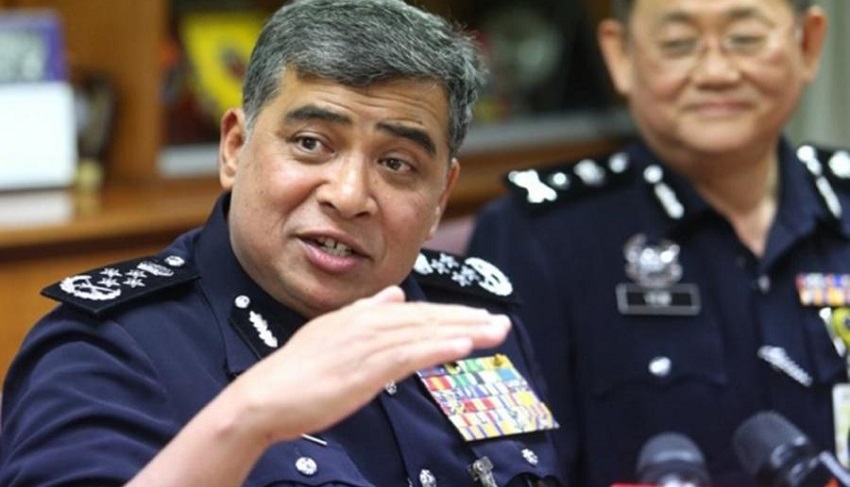- Malaysia Arrests North Korean in Kim Killing
Malaysian police said Saturday they had arrested a North Korean man over the assassination of Kim Jong-Un’s brother, as relations between Pyongyang and Kuala Lumpur nosedived over a battle for his body.
A 46-year-old was arrested on Friday evening with documents that identified him as North Korean citizen Ri Jong Chol, a police statement said, making him the first person from the North to be detained over the case.
Officers have already arrested a woman with a Vietnamese passport and a Malaysian man, as well as an Indonesian woman who foreign police said could have got involved in the murder thinking it was a reality TV prank.
The body of Kim Jong-Nam has been held in a Kuala Lumpur morgue since he was assassinated in a Cold War-style killing at the capital’s international airport on Monday.
Pyongyang accused Malaysia of conspiring with its enemies and said it would reject any results of a post-mortem examination carried out by local police, after Malaysia ignored demands to return the remains.
“The Malaysian side forced the post-mortem without our permission and witnessing. We will categorically reject the result of the post-mortem conducted unilaterally excluding our attendance,” the North Korean ambassador told reporters gathered outside the morgue shortly before midnight on Friday.
The comments were the first official remarks from the country since the killing, but ambassador Kang Chol stopped short of identifying Jong-Nam or touching on his cause of death.
North Korean state media has remained silent on the murder, which Seoul says was carried out by poison-wielding female agents working for Pyongyang.
The ambassador earlier met with Malaysian police, demanding the release of the body without success, according to an English transcript of the envoy’s comments distributed by an aide.
“They are colluding with the hostile forces towards us who are desperate to harm us of malice,” the transcript said, suggesting South Korea was trying to defame the North in a bid to distract from a corruption scandal at home.
On Saturday Malaysia’s police chief said Pyongyang would have to wait for the investigation to be completed, which would include a family member sending a DNA sample to identify the body.
“While in Malaysia, everyone has to obey and follow our rules and regulations… that includes North Korea,” Inspector-General of Police Tan Sri Khalid Abu Bakar told national news agency Bernama.
– A ‘TV show prank’ –
Detectives in Kuala Lumpur have arrested a 25-year-old Indonesian woman named Siti Aishah and her Malaysian boyfriend, along with a woman carrying a Vietnamese passport that identified her as Doan Thi Huong, 28.
Indonesian Police Chief Tito Karnavian said he had information from Malaysia that Aishah was tricked into thinking she was simply taking part in pranks for a TV show like “Just For Laughs”.
“Probably she was just used — she did not realise it was an assassination attempt,” he was quoted as saying in local media.
Aishah’s family in Jakarta expressed shock over her arrest, with her former father-in-law saying there was “no way such a nice person would do that”.
“I could not believe it because she was a good person,” said Tija Liang Kiong, 56.
The drama erupted on Monday morning as Jong-Nam prepared to board a plane to Macau.
Malaysian police say the 45-year-old was jumped by two women who squirted some kind of liquid in his face.
Jong-Nam told staff he was suffering from a headache and was taken to the airport clinic grimacing in pain, according to Malaysian media citing CCTV footage from the airport.
He was once thought to be the natural successor to his father, but on Kim Jong-Il’s death in 2011 the succession went to Kim Jong-Un, who was born to the former leader’s third wife.
Reports of purges and executions have emerged from the current regime as Kim Jong-Un tries to strengthen his grip on power in the face of international pressure over nuclear and missile programmes.


 Naira4 weeks ago
Naira4 weeks ago
 News4 weeks ago
News4 weeks ago
 Naira4 weeks ago
Naira4 weeks ago
 Travel3 weeks ago
Travel3 weeks ago
 Naira3 weeks ago
Naira3 weeks ago
 Jobs4 weeks ago
Jobs4 weeks ago
 Naira3 weeks ago
Naira3 weeks ago
 Investment4 weeks ago
Investment4 weeks ago





























